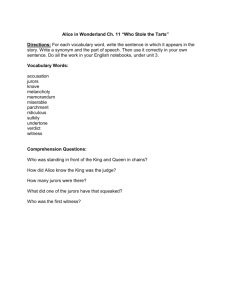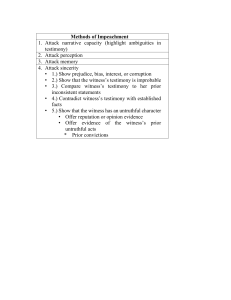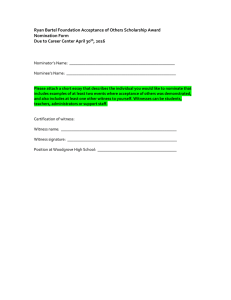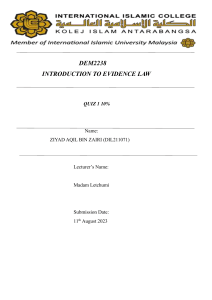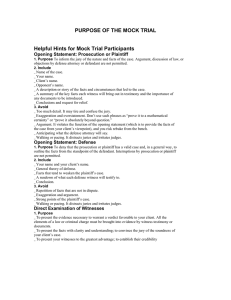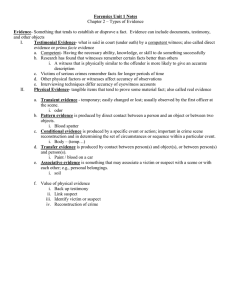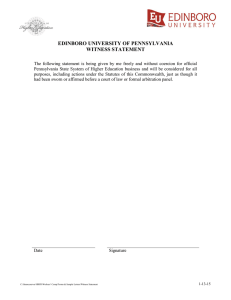Jackie Hodgson Neil Stewart
advertisement
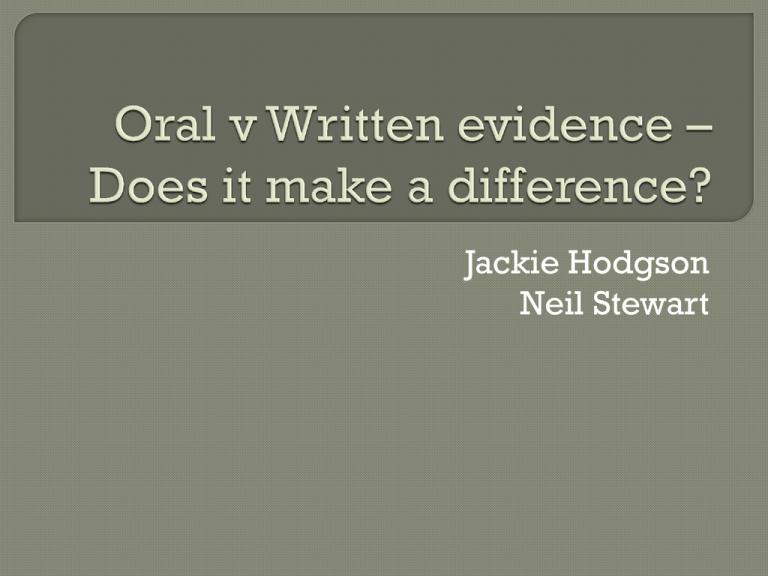
Jackie Hodgson Neil Stewart Working in an interdisciplinary way is hard! Exploring criminal justice issues from both disciplinary perspective Identifying common interests; points of tension; different or conflicting understandings Planning a joint research project in which both disciplinary perspectives can contribute to the research (questions) Adversarial and inquisitorial procedural models Different forms of evidence (written/oral testimony) Parties/centralised process of gathering, assembly, selection and presentation of evidence Resource (rather than procedural) driven changes to written evidence – managing and agreeing the evidence Do we attach more or less credibility to evidence presented orally or in writing?(Apart from the fact that witness testimony can be interrogated) The importance of the process of producing evidence (judicial/police/defence q’ing -> statement) Is the process masked by different modes of presentation – do jurors realise that statements are police constructions? Is it important that a story unfolds over time (witnesses in a trial) rather than being presented as a case file? How does the integration of evidence into an overall decision differ for oral vs. written evidence? The context of oral evidence, where the witness is led and then cross examined, is quite different from a witness statement What about repeated evidence, initially written and then oral? Massed vs. distributed practices Lack of emotional context in written evidence Written evidence is in the first person, even though it is written by someone else. Do jurors appreciate the origin of the evidence, and that the writer may impose their own perspective? Is written evidence taken as more truthful? Perhaps, ecologically, written words are more reliable than spoken words. But perhaps the context of the court makes witnesses more reliable for in-count oral evidence vs. in-the-home written evidence.
